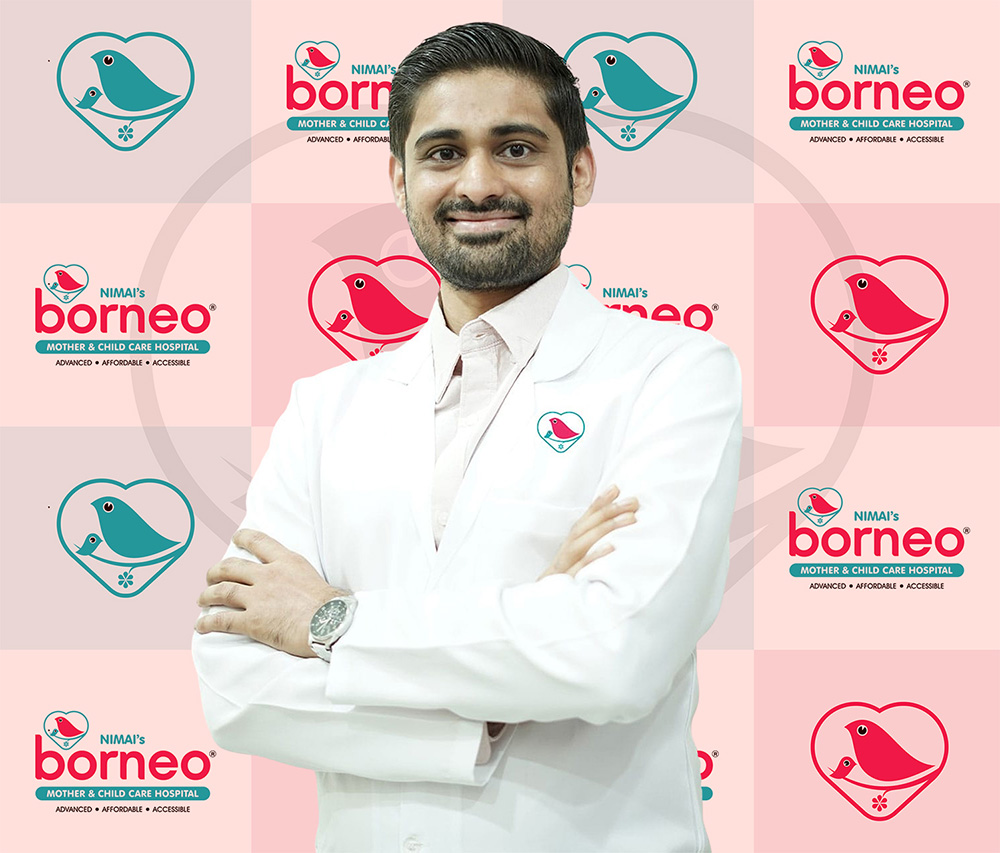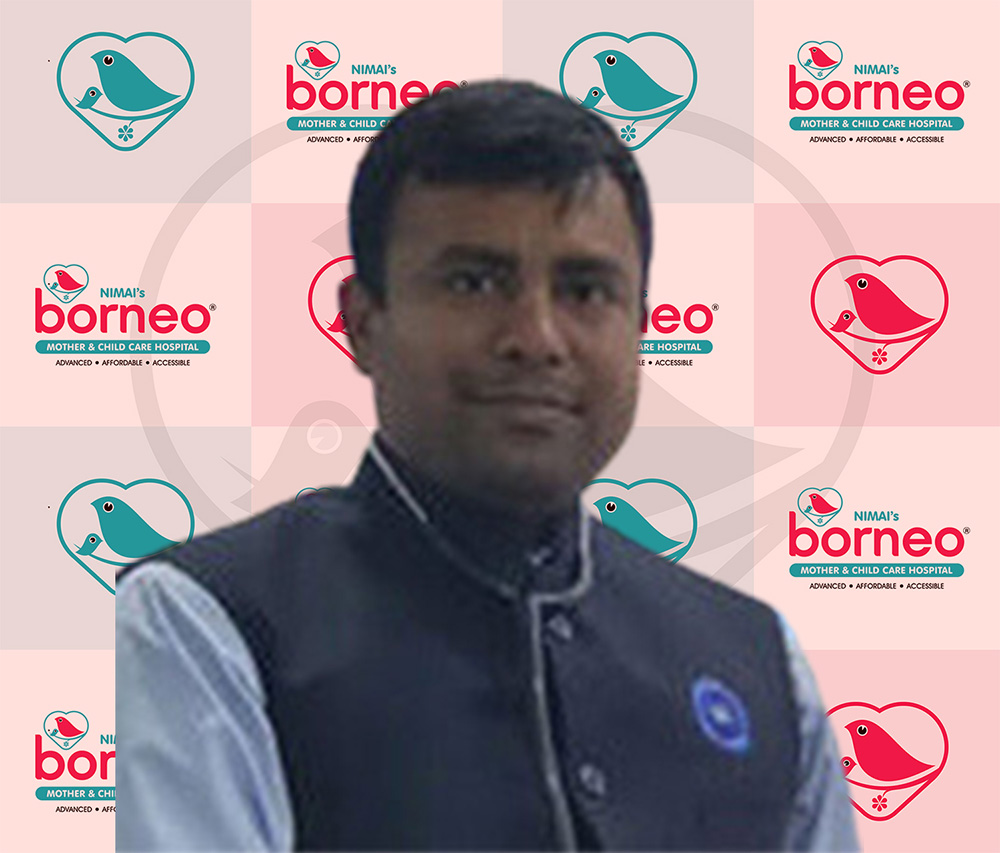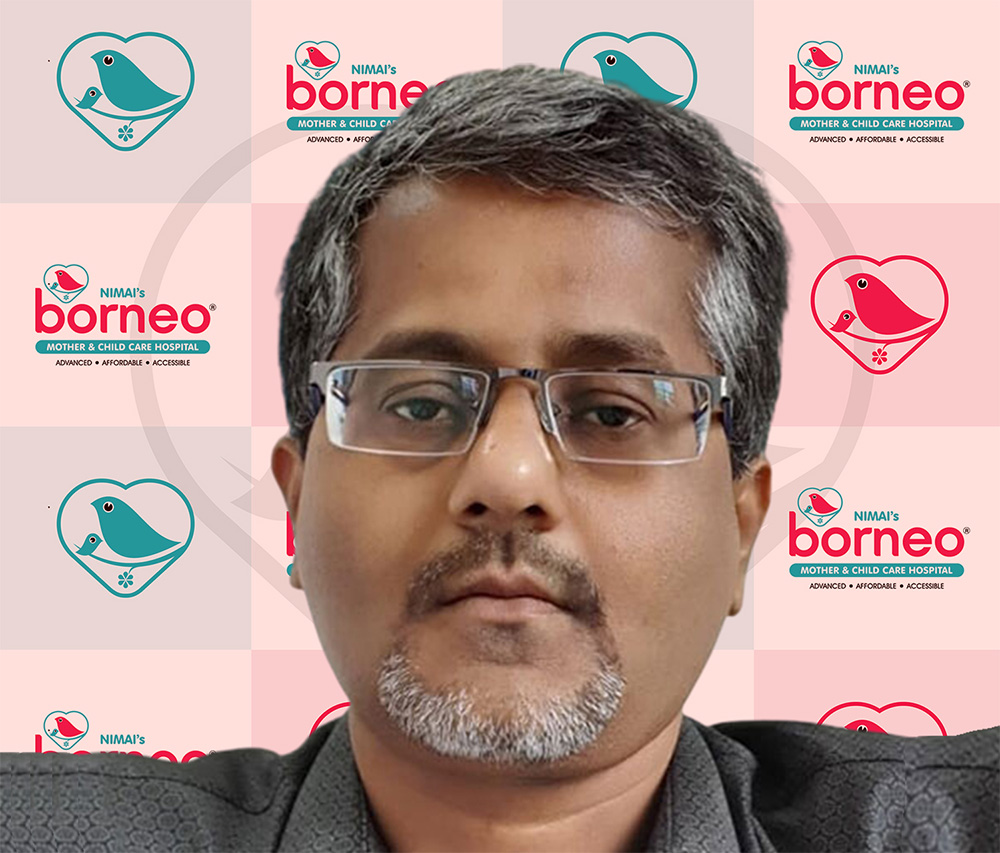
Total Parenteral Nutrition (TPN) is a specialized form of nutrition that provides essential nutrients directly into the bloodstream for neonates who cannot tolerate or absorb adequate nutrition through the gastrointestinal tract. Neonates requiring TPN are often premature or critically ill, and their nutritional needs are met intravenously.
At Borneo Hospital in Thane, we understand the critical importance of providing optimal care to our neonatal patients, particularly regarding their nutritional needs. For newborns who are unable to obtain adequate nutrition through oral intake, we employ the advanced technique of Total Parenteral Nutrition (TPN).

TPN is indicated for neonates who cannot consume or tolerate enteral feeds.
Common reasons include:
It is essential to initiate TPN when enteral feeding is insufficient or contraindicated to prevent malnutrition and promote growth and development.

The procedure for TPN in neonates typically involves the following steps:
There are several advantages to using TPN in neonates:
The ultimate goal in neonatal TPN is to transition the neonate to enteral feeding as soon as possible. As the neonate's gastrointestinal function improves, enteral feeds are introduced gradually while adjusting the TPN infusion rate.
This transition helps restore gut function, promotes oral feeding skills, and reduces the risks associated with long-term TPN use.
Special care is required when administering TPN to neonates. Strict aseptic techniques must be followed during catheter insertion and maintenance to prevent infections.
Close monitoring of fluid balance, blood glucose levels, electrolytes, liver function, and growth parameters is essential. Regular collaboration among the healthcare team, including neonatologists, nurses, pharmacists, and dietitians, ensures safe and effective TPN administration.
At Borneo Hospital, an experienced neonatal healthcare team is specialized in providing personalized care to premature infants receiving TPN, ensuring their nutritional needs are met while supporting their growth and well-being.

Speciality: Neonatology
Designation: Consultant Neonatalogist
Thane

Speciality: Neonatology
Designation: Neonatologist
Thane

Speciality: Neonatology
Designation: Neonatologist
Thane